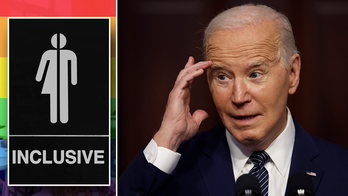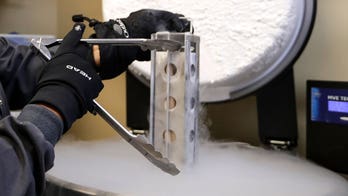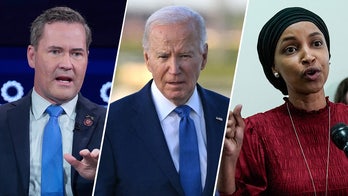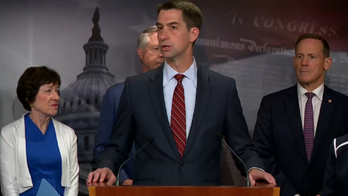As the flag-draped coffin of Hugo Chávez was carried through the streets of Caracas on Wednesday, it was not only Venezuelans mourning the loss of the firebrand former president.
For 14 years, Chávez cultivated a cult of personality and a loyal band of followers throughout Latin America due in equal to his fiery rhetoric and his generous oil subsidies. His death has left a dearth in the leadership of Latin America’s radical Left and given rise to questions about who will fill that role.
“Chávez was an outsized personality and he had the ambitions to spearhead his own Bolivarian revolution,” said Eric Hershberg, the director of Latin American Studies at American University. “There is not an obviously clear successor to take on that role.”
Thanks in part to his regional body named the Bolivarian Alliance for the Americas (ALBA), Chávez built a close coalition of regional leaders that were sympathetic to his socialist views, including Ecuador’s Rafael Correa and Bolivia’s Evo Morales. Venezuelan oil subsidies also helped secure the allegiances of Cold War stalwarts such Cuba’s Castro brothers and Nicaragua’s Daniel Ortega.
There was no one like Hugo Chávez.
Now with Chávez death, the left-leaning answer to the U.S.-backed Organization of American States has to find a new figurehead to lead the alliance.
Some also think that the movement toward a more red left will die off with the former Venezuelan leader. Chávez helped usher in the aptly named new wave of Latin American socialism and gave the institutional precedent for leaders like Correa and Morales to come to power.
The Pink Tide of last decade, which saw the ascent of a number of left leaning leaders in the last 15 years, from Chávez to former Brazilian President Luiz Inácio Lula da Silva, could edge from the more radical side to a more moderate one now that Chávez is dead.
“Latin America’s move to the left is not completed,” said George Ciccariello-Maher, an expert in Venezuelan politics at Drexel University in Philadelphia. “There is definitely not a united left in Latin America.”
Experts almost unanimously agree that a replacement for Chávez is almost impossible, due to both his political savvy and Venezuela’s oil money. But if there was to be someone to pilot Latin America’s radical left it might be Ecuador’s Correa.
A career politician with a similar spirited style and political view to Chávez, Correa recently handily won reelection, has gained popularity for his rampant public spending and gained notoriety on the world stages for clashes with the United States – including his refusal to renew the lease on airbases used by US forces to mount anti-narcotics missions and the 2008 expulsion of two U.S diplomats.
Ecuador is also a member of the Organization of the Petroleum Exporting Countries (OPEC) and relies heavily on these exports. While the country’s exports pale in comparison to Venezuela's – 334 barrels per day compared to Venezuela’s 1,553 – Correa has aggressively pushed for new contracts with foreign companies to share the income that goes to the state.
Correa also fashions his public image after Chávez, using his weekly radio and TV shows to attack enemies and push his agenda, while suppressing free press.
“Correa is ideologically very similar to Chávez and one could view him as the successor, but nobody can follow Chávez,” said Shannon O’Neill, a senior fellow at the Council of Foreign Relations. “There is no other leader that has both the ideology and economic backing that he had.”
Much has been made of Chávez’s working class background and his rise to power, which is in opposition to many of Latin America’s leaders – Correa included – who come from more landed backgrounds. The former Venezuelan’s so-called authenticity may be surpassed only by Bolivia’s Morales.
A former coca farmer, Morales came to power in 2006 and rode a wave of popular support to become Latin America’s first indigenous leader. Demure, pudgy and almost always dressed in his trademark sweater, Morales is an avowed socialist and a champion of Bolivia’s indigenous majority.
As one of Chávez’s closest allies, Morales seized control of Bolivia’s affluent gas fields and put them under state control soon after his election. Other changes implemented during Morales’ first term were a constitutional reform that gave more regional and local autonomy and redefined Bolivia as a plur-national nation.
Much as Chávez ran into opposition from Venezuela’s conservative factions and business leaders, Morales ran into problems with leaders from Bolivia’s wealthy eastern province of Santa Cruz, who argued his polices damaged the economy and threatened private property.
His support of the coca growers has also put him at odds with the U.S., who wants to eradicate the crop that is the base substance in the production of cocaine.
While Morales has made a name for himself inside Bolivia and in certain parts of the world, he seems be content with his work in his homeland and has not shown intentions of taking up the mantle left by Chávez’s passing.
“I don’t see any effort by Morales to project himself as a leader beyond Bolivia,” Hershberg said, adding that unlike Correa, Morales seems content with his place as a world leader.
Some experts, however, believe that Morales’ background and ability to relate to Latin America’s poor would set him up as an ideal successor to Chávez’s title as leader of Latin America’s left.
“Morales can relate to social and indigenous movements in the same way that Chávez could,” said George Ciccariello-Maher, an expert in Venezuelan politics at Drexel University in Philadelphia. “Correa has a much more difficult time with social movements.”
Chávez’s chosen successor in Venezuela, Nicolás Maduro, is seen by experts as a long shot to take over his role on the global stage. His lack of charisma, inability to appeal to every facet of Venezuela’s socialist party like Chávez did and apparent lack of experience – as evidenced by his jumbled handling of Chávez’s death – all play against him.
“Maduro doesn’t have the personality,” said Susan Purcell of the Center for Hemispheric Policy at the University of Miami of the former bus driver-turned-political leader. “His crazy speech the day Chávez died shows he was trying to pick up his mantle of anti-U.S. rhetoric and it didn’t work.”
Venezuela’s economic woes and rampant problems with crime and corruption will be major problems for Maduro if he is elected president and should force him to focus his efforts internally rather than on the global stage.
“If Maduro redistributes these goodies outside the country,” Purcell said of the country’s oil wealth. “There could be a backlash because Venezuelans are not doing well right now.”
What may happen in Latin America is a progression of the divide of the region’s left between the more radical side represented by Chávez’s ALBA and the democratic left championed by Brazil’s da Silva, who pushed for social inclusion alongside a free market economy.
While Lula da Silva wrote in the New York Times that he “will always cherish the friendship and partnership” that Chávez and himself shared, the two former leaders represented very different views of Latin American development.
As Venezuela – and Latin America as a whole – moves on in the post-Chávez world, one thing is clear: the region will most likely not see a leader as polarizing as Hugo Chávez for a long time.
“There was no one like Hugo Chávez,” O’Neil said. “Chávez was a master orator. He was impressive.”




